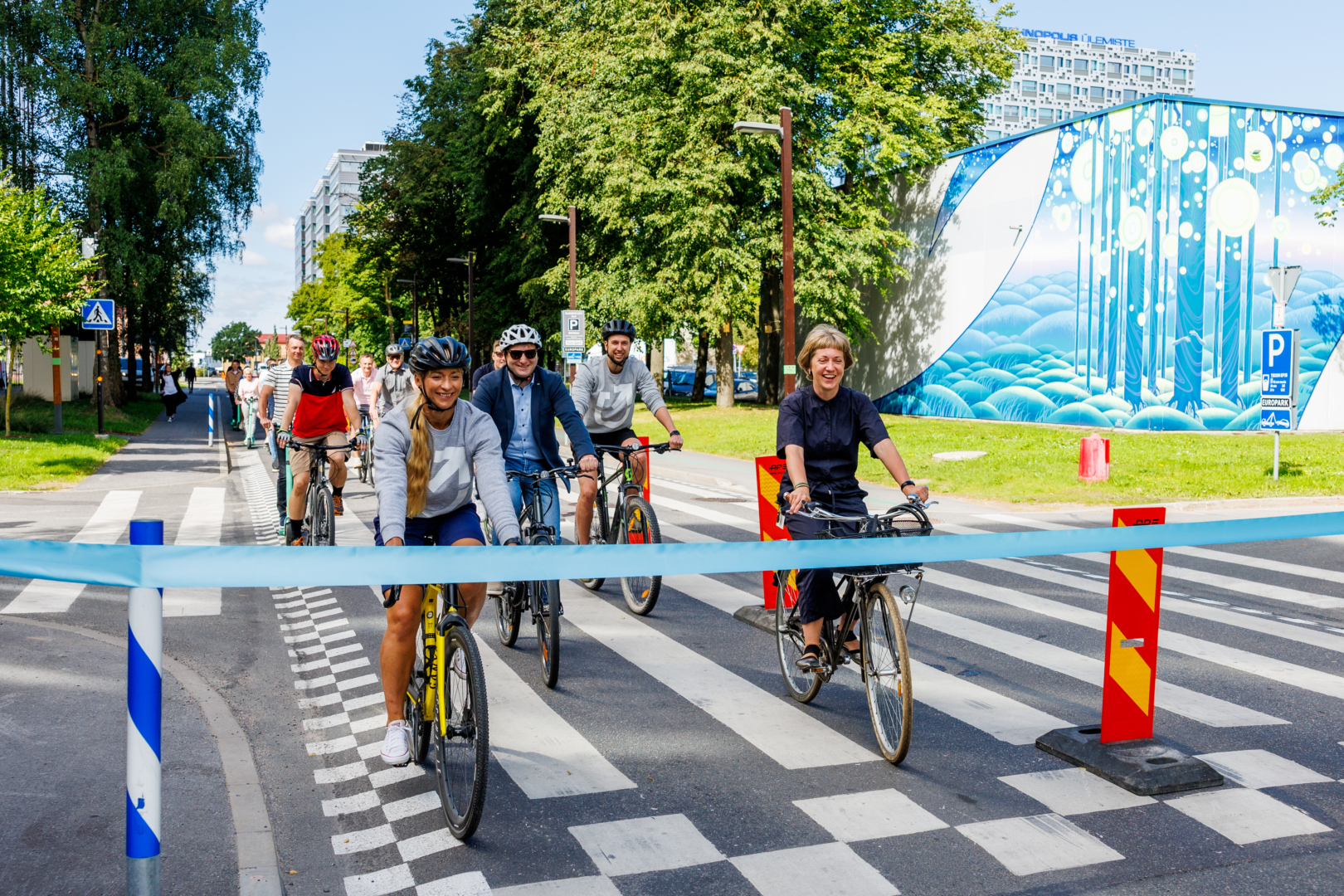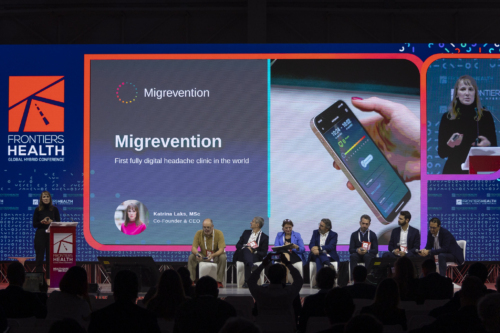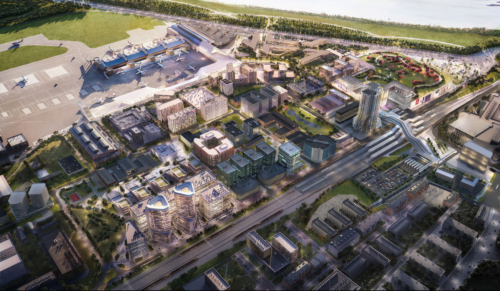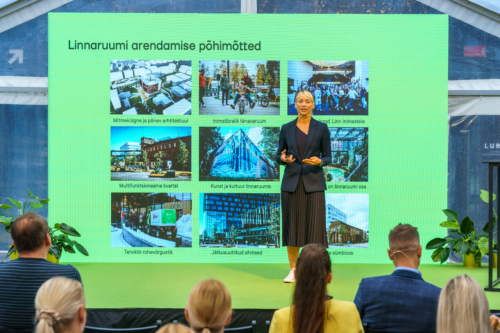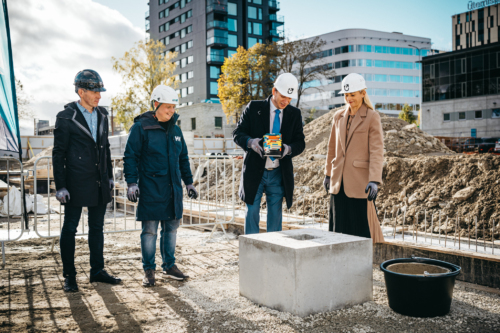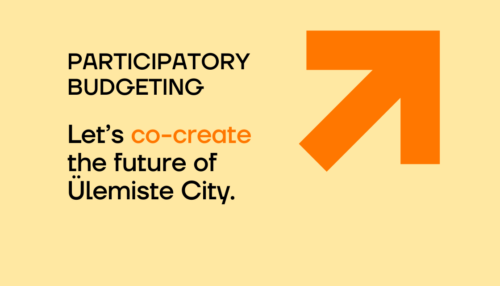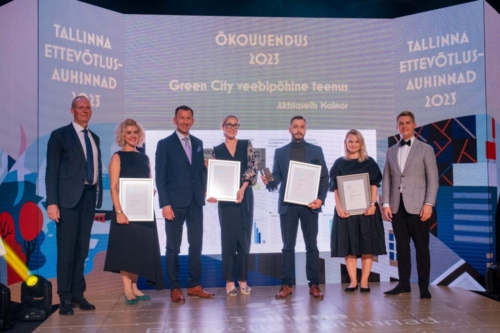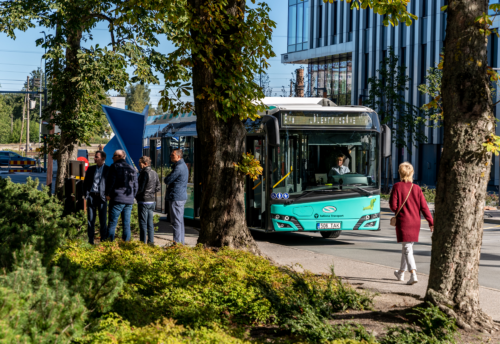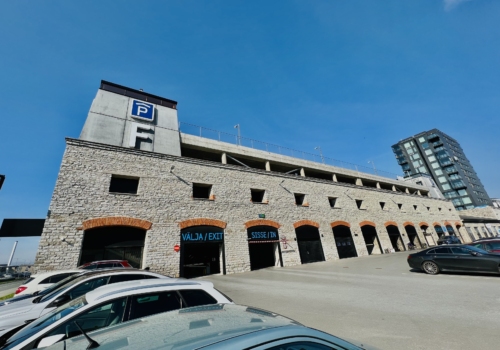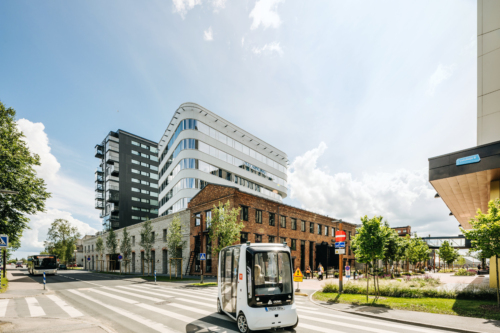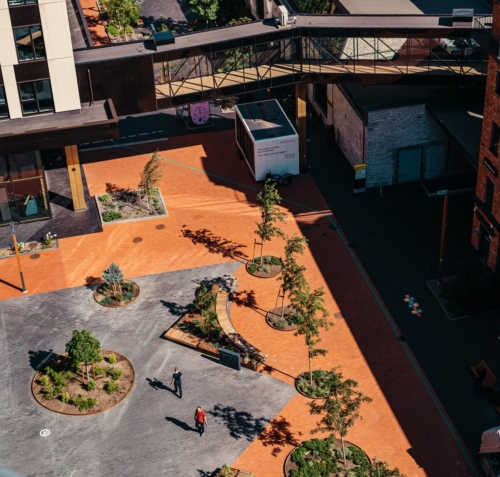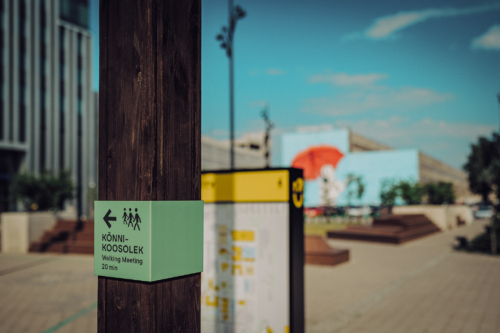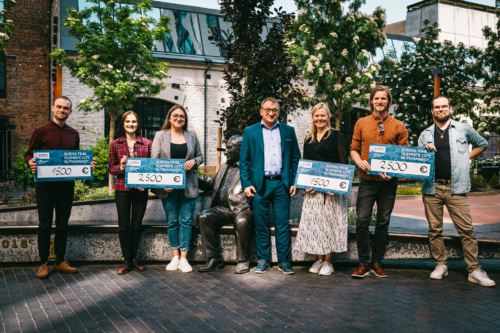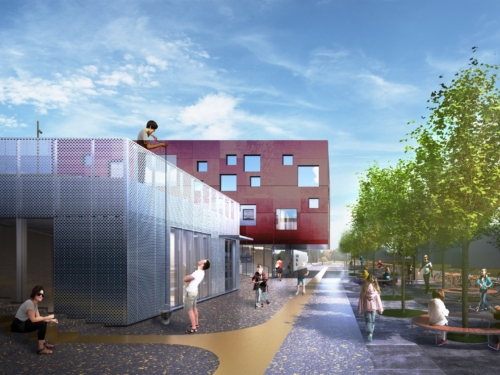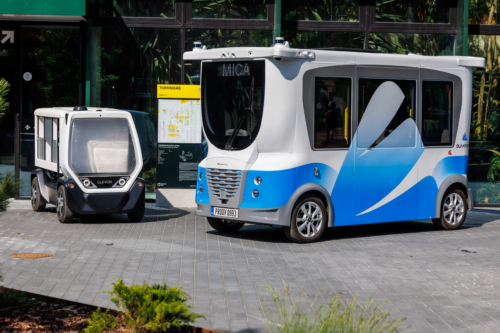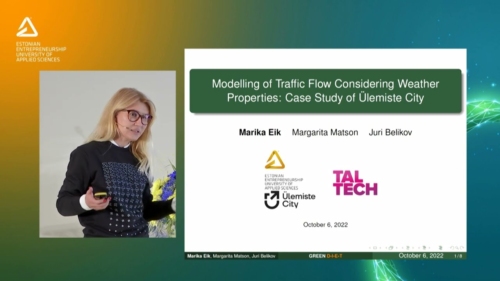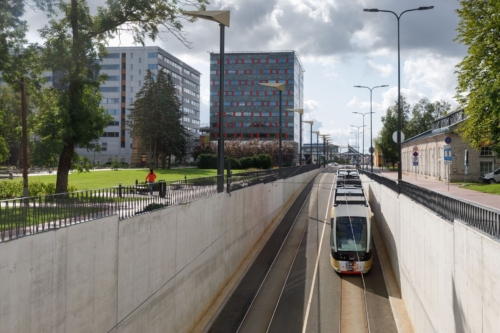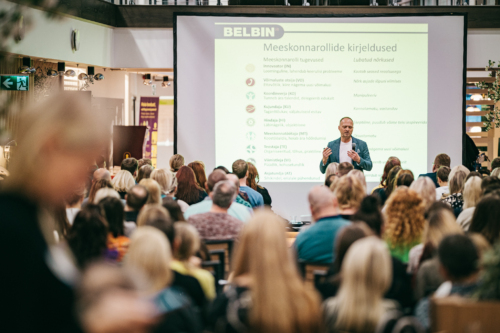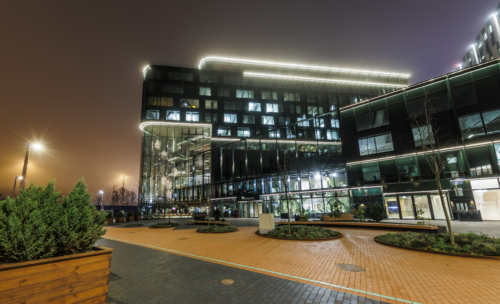A pilot project of bike paths was launched in Ülemiste City to give cyclists more space
On 1 August, a pilot project of bike paths was launched in Ülemiste City in cooperation with the city of Tallinn. The project will initially last until the end of September.
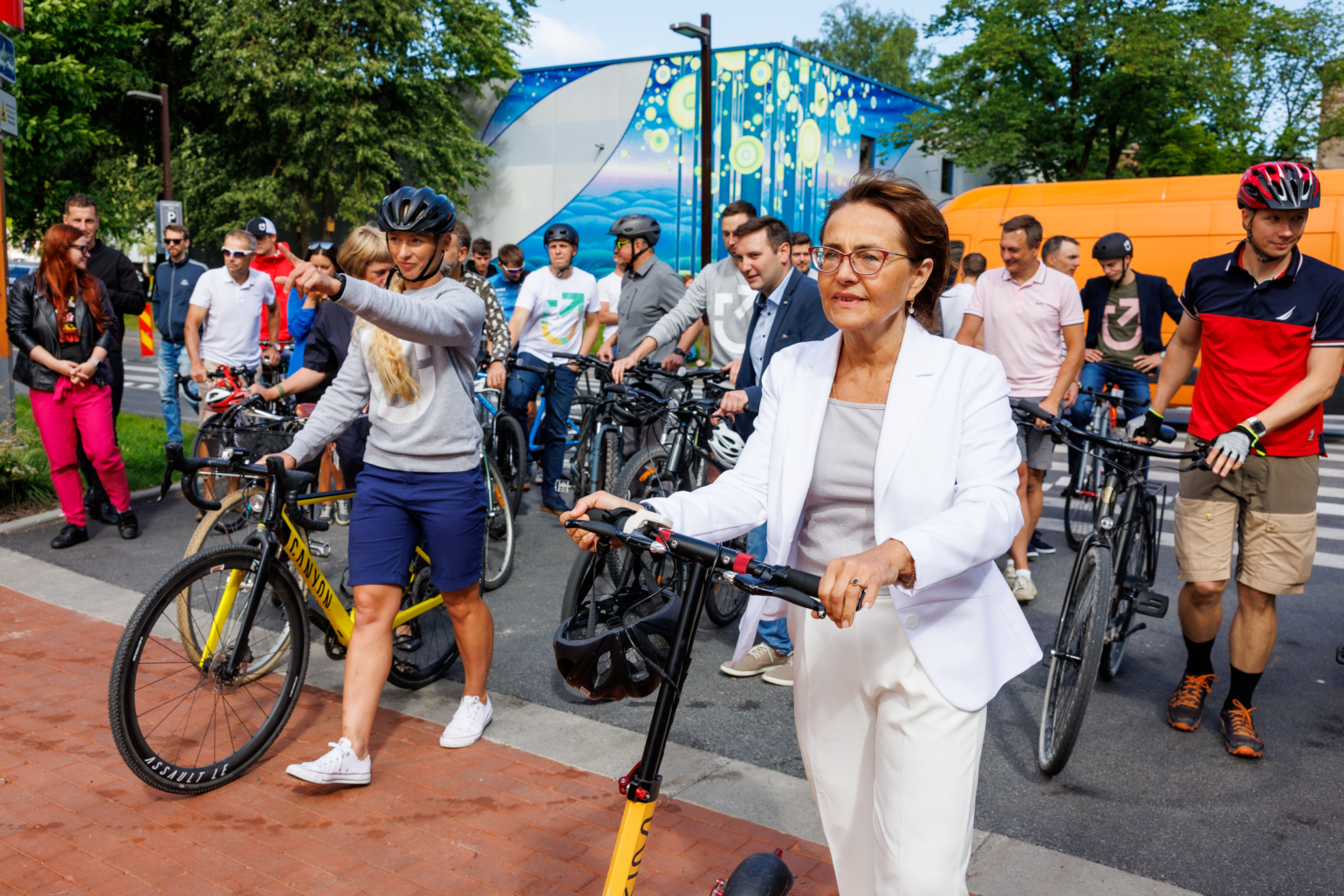
In cooperation with Tartu University researchers, it has become clear that people working in Ülemiste City sit for 5–8 hours a day. This poses a high health risk, as even one hour of exercise does not help to cancel out the effect of sitting. Therefore, in cooperation with the city of Tallinn, Lõõtsa and Valukoja streets will be temporarily made one-way streets in order to create more space for cyclists and scooter users in August and September.
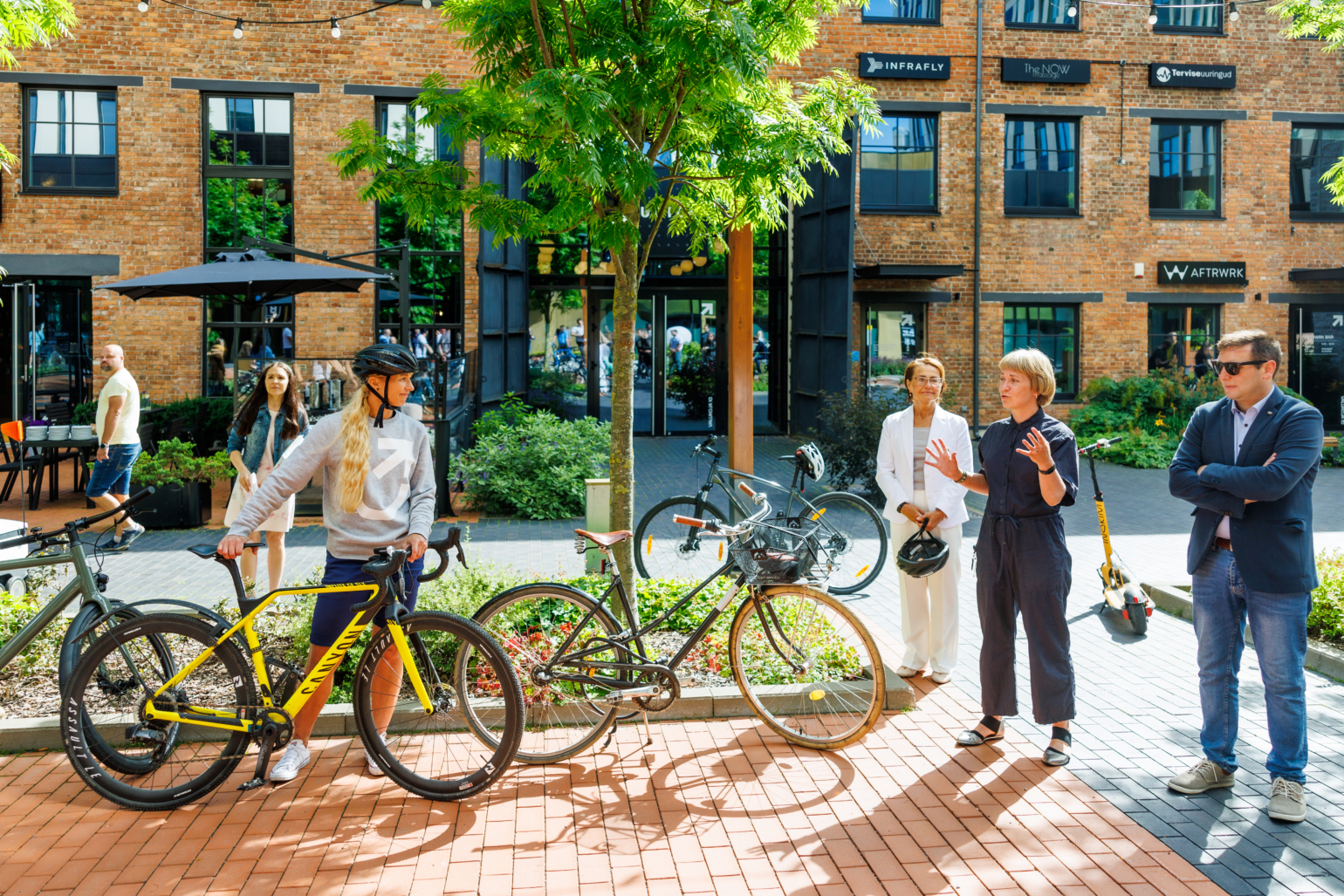
‘This is a significant step towards our future vision, which is a greener city and a car-free heart of Ülemiste City, which belongs to pedestrians and cyclists,’ said Ursel Velve, innovation manager of Ülemiste City and Chairman of the Management Board of Mainor Ülemiste. ‘With this project, carried out in cooperation with the Tallinn Transport Department, we will see how the employees of Ülemiste City will change their movement habits by giving more space to cyclists and pedestrians,’ she added. Velve hopes that this project and those carried out in the future favouring exercise will provide more convenient opportunities for those who enjoy different types of movement.
‘For the purpose of the pilot project, we have also added scooter charging stations in cooperation with Bolt, so that it is possible to combine different modes of movement, for example coming to work by bus and going home by scooter,’ added Velve.
The project will also help the city of Tallinn to test and understand how traffic management changes in city centres help to create a safe and human-friendly environment and what further data- and experience-based developments can be implemented for car-free movement in Tallinn. According to the Deputy Mayor of Tallinn, Andrei Novikov, the city wants to support the good mental and physical health of the citizens through exercise. ‘Safe opportunities to move on foot, by bike, or with the help of other personal light electric vehicles promote health and also help preserve nature. We want a pleasant urban space to support opportunities to have an active lifestyle, including on the streets near the workplace,’ said Novikov.
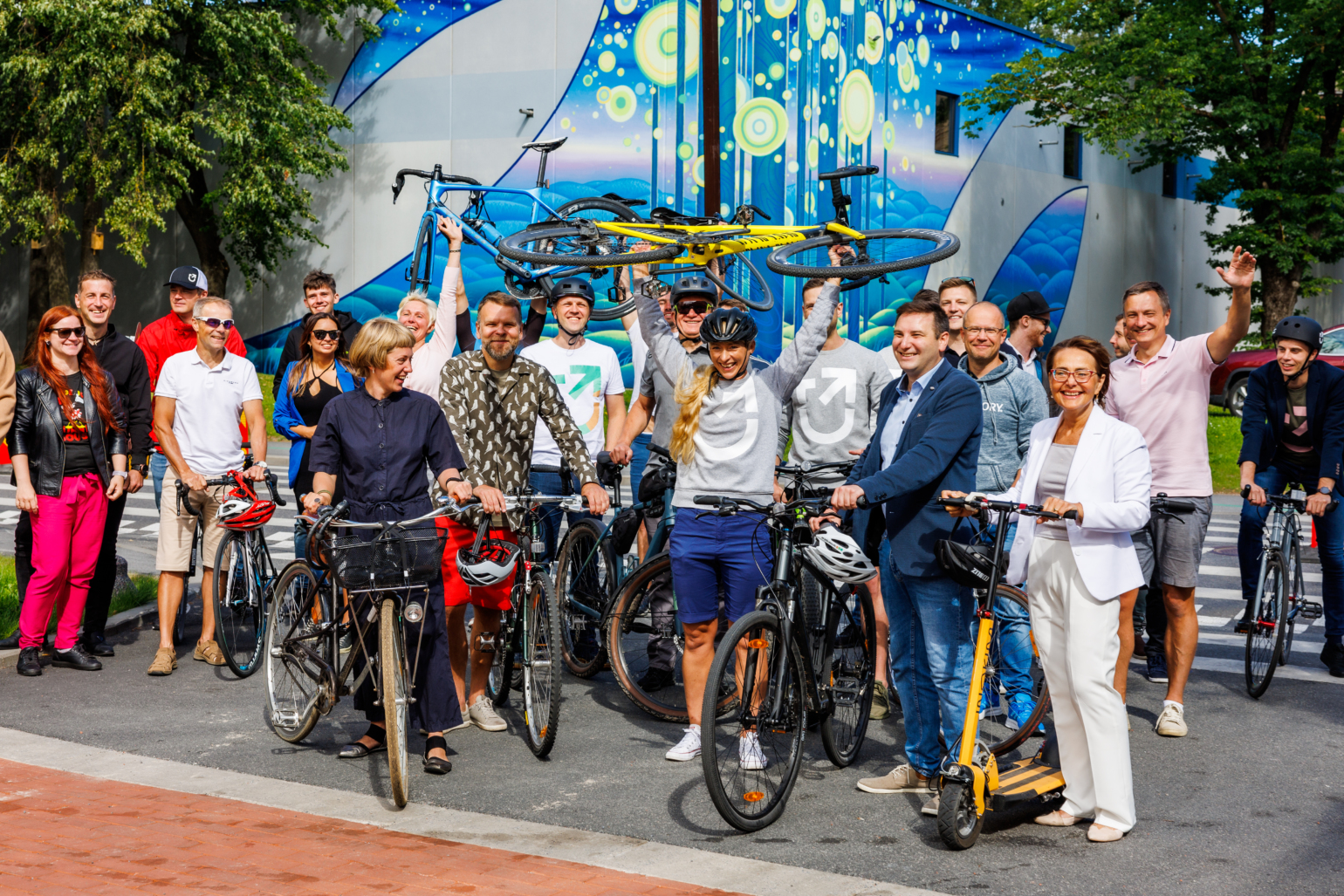
In June of this year, a survey conducted by the Estonian Entrepreneurship University of Applied Sciences Mainor in Ülemiste City revealed that the main means of transport for coming to the city is by far the car – it was the most popular means of transport among 54% of the respondents, followed by bus (23%), tram (7%), and walking (7%). The share of the remaining options as the main means of transport was below 5%. ‘Our goal is to increase the proportion of pedestrians and people using personal light electric vehicles to 10 percent in order to reduce the level of noise and pollution in the environment. The longer-term goal is to support the Tallinn 2035 development strategy, so that by 2025, 50% of our employees, which we are already very close to, and by 2035, 70% of them, will use public transport to get to the city or walk or cycle here,’ said Velve. Reducing the number of people travelling by car helps people create a greener and more diverse urban environment, and Ülemiste City has created several opportunities for this: last September, an express bus line was opened (from Väike-Õismäe through Mustamäe), as well as a flexible tram connection to the city centre. In the future, the city wants to open a line that people can use to get to the port as well.
Alternative means of transportation in Ülemiste City are mainly scooters (22%) or bicycles (21%), followed by buses (19%) and walking (18%) and then trams (10%) with fairly equal shares. Approximately 2% of the respondents said they take a train to Ülemiste City and back.
The pilot project of bike paths is carried out by the city of Tallinn together with the FinestTwins Smart City Centre of Excellence, which is financed by the European Regional Development Fund and the Ministry of Education and Research.
